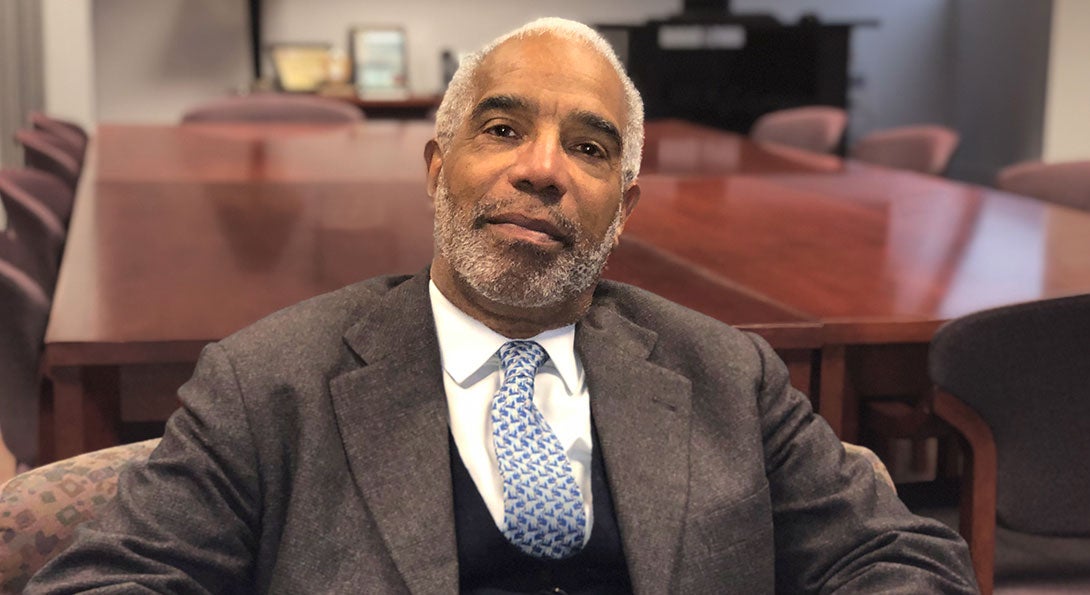Dr. John Holton Joins Center for Social Policy and Research as Director of Strategic Initiatives

Dr. Holton brings considerable experience in the areas of gerontology, child well-being, and working with both government and community stakeholders.
With great modesty, John Holton PhD describes his career as unintentional, adding, “but it has allowed me to participate in a fortuitous variety of policies, programs and academic learning.” Others would likely describe his career as notable, providing a wealth of experience that he brings to the role of Director of Strategic Initiatives at the Jane Addams Center for Social Policy and Research.
Prior to joining the Center, Dr. Holton served as Director of the Center for Gerontology at Concordia College in Chicago. “The aim of the Center for Gerontology was to strengthen the academic preparation of students getting graduate degrees in gerontology, social work, exercise science, nursing and other related health fields for the explosive growth in the older population due to the aging of baby boomers and longer life expectancies that have exceeded all historical indications,” he says. “Our nation's thinking has not caught up with all of these realities. There’s a lot for us to do and discuss and advocate for, and to learn.”
His interest in gerontology and older populations was inspired partly from his own experiences during the last years of his mother’s life. “I cared for my mother for about three years prior to her passing. During that time, she acquired Alzheimer’s disease and required 24/7 care in a long term care facility,” he says. “So, I became a consumer of care for a relative, and that introduced me to the chaos of finding care. This was a wakeup call, because I knew many other families were experiencing the same problem.”
Holton also sees an important intersection between aging populations and mass incarceration, an issue that lies at the heart of much of the work done by the Center for Social Policy and Research. “Elderly incarcerated people are a subpopulation that has challenges that are different than that of the general population of individuals over 50,” he says. “That is an expertise that is waiting to be identified and leveraged to answer questions of what futures these individuals will have in society upon their release, and what role social workers can play to make sure they do have a future.”
As Director of the Illinois Department on Aging, Holton was involved in the implementation of the Colbert Consent Decree, which addressed the unnecessary segregation of people with physical disabilities and/or mental illness in nursing homes in Cook County, and assisted them in their transition back to community living. “I felt good about what we accomplished through the Colbert Consent Decree to relocate older adults who had been restricted to nursing homes,” he says. “The Department on Aging had a network of service providers who were up to the challenge of helping people relocate into the community, and we were successful and met the aims of the consent decree.” This aligns with the Center’s ongoing work in evaluating implementation of the Williams Consent Decree.
For Holton, his experiences at the Department on Aging underscored the good that government can accomplish, but also that government can’t do everything on its own. “This understanding is what led me into the academic environment, because I thought it would be good to use higher education as a resource for both government and the private sector, which hadn’t really been the case,” he says. “So, coming to the Policy Center at Jane Addams, that has such a strong record of partnerships with government agencies and community stakeholders, allows me a further opportunity to address issues of aging, along with other issues that I’ve always been interested in, such as child trafficking and child welfare.”
These include issues of child well-being, and Holton served as Vice-President for Research and Director at the National Center on Child Abuse and Neglect Prevention Research. “My work there gave me a background in child welfare, though not from a strict social work perspective, but more from a public health perspective,” he says. “Our focus was not on serving an individual child within their family, but looking at how a population can organize itself to prevent the need for such services.”
During his time there, the agency worked with the Centers for Disease Control and Prevention to adopt and implement the National Violent Death Reporting System (NVDRS), an innovative data collection to capture information on children and youth suicide, undetermined deaths, homicides, and unintentional firearm injury. “It was a public health type of approach, and taught me quite a bit about the meshing of child welfare, public health and social work,” he explains. “In particular, the way in which social work informs community organizing; how does a community, school system, church or civic group organize to accomplish a goal such as reducing child maltreatment.”
The topic of working at the community level brings Dr. Holton back to the roles of government and policy. “We won’t drive positive government intervention without driving policy, understanding how policy works, the levers of advocacy that have to get pulled, and how do you make policymakers informed,” says Holton. “That’s all part of the work at a center for policy, and my own past work is situated in the right place to help accomplish this at Jane Addams.”